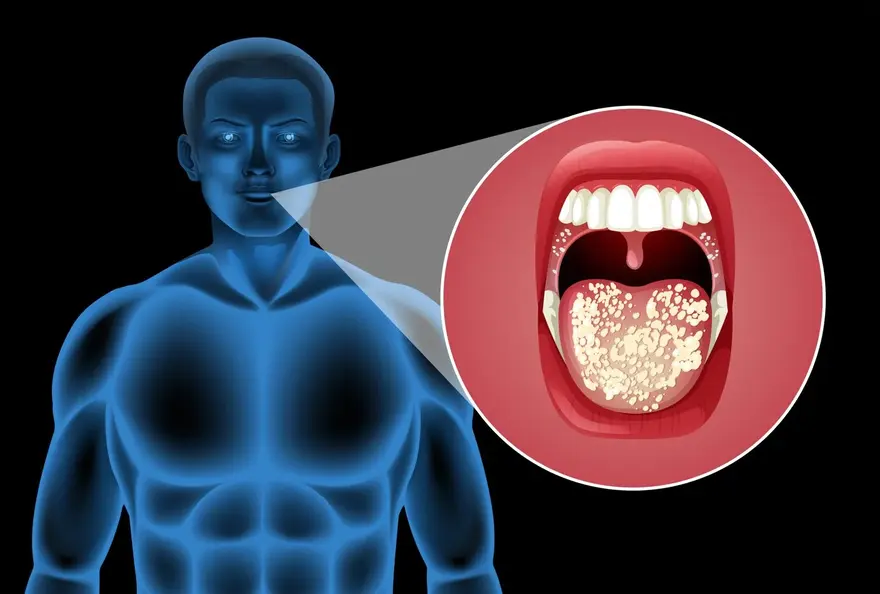Preventive Healthcare
Pleurisy: Causes, Symptoms, and Treatment for Chest Pain and Inflammation
896 Views
0

What is Pleurisy?
Pleurisy, also known as pleuritis, is the inflammation of the pleura, the double-layered membrane surrounding the lungs and lining the chest cavity. The pleura usually has a smooth, slippery surface, which allows the lungs to move smoothly during breathing. When the pleura become inflamed, they lose their smoothness, causing the layers to rub together, resulting in sharp chest pain, especially when breathing deeply or coughing.
Pleurisy causes can be attributed to infections (bacterial or viral), autoimmune diseases, or other underlying conditions like pulmonary embolism or rib fractures. Pleurisy treatment depends on the underlying cause.
How do we know if we have pleurisy?
The hallmark symptom of pleurisy is a sharp, stabbing pain in the chest that intensifies with deep breathing, coughing, or sneezing. The pain may be localised to one area of the chest or radiate to the shoulders and back. Shortness of breath, cough, and fever are other common pleurisy symptoms.
How do we get pleurisy?
Pleurisy can develop due to various underlying causes. Some common pleurisy causes include:
- Viral infections like the flu
- Bacterial infections such as pneumonia
- Autoimmune disorders like lupus or rheumatoid arthritis
- Lung cancer
- Pulmonary embolism (blood clot in the lungs)
- Tuberculosis
- Chest trauma or rib fractures
Who does pleurisy affect?
While pleurisy can affect people of all ages, some individuals are at higher risk, including:
- Older adults over 65, who are more prone to lung infections
- People with weakened immune systems
- Those with underlying health conditions like pneumonia, tuberculosis, lupus, or lung cancer
- Individuals who smoke or have a history of smoking
How serious is pleurisy?
The severity of pleurisy depends on the underlying cause. In some cases, such as those caused by viral infections, pleurisy may resolve on its own within a few days to weeks. However, pleurisy resulting from serious conditions like bacterial pneumonia, tuberculosis, or lung cancer requires prompt medical attention and treatment to prevent complications.
What are the symptoms of pleurisy?
The most common pleurisy symptoms include:
- Sharp chest pain that worsens with breathing, coughing, or sneezing
- Shortness of breath
- Cough (dry or productive)
- Fever and chills
- Rapid, shallow breathing
- Pain in one or both shoulders
- Headaches
- Joint pain (in some cases)
What causes pleurisy?
Various factors can lead to pleurisy. Let's explore some of the main pleurisy causes in more detail:
Infections:
- Viral infections like influenza, mumps, or cytomegalovirus
- Bacterial infections, most commonly pneumonia
- Fungal infections, especially in immunocompromised individuals
- Parasitic infections like amebiasis
Autoimmune disorders:
- Lupus
- Rheumatoid arthritis
- Sarcoidosis
- Wegener's granulomatosis
Cancers:
- Lung cancer
- Lymphoma
- Mesothelioma (cancer of the pleura)
- Metastatic cancers that have spread to the lungs
Other causes:
- Pulmonary embolism
- Tuberculosis
- Chest trauma or rib fractures
- Certain medications
- Complications from medical procedures like heart surgery
Is pleurisy contagious?
Pleurisy itself is not contagious. However, some of the underlying infections that cause pleurisy, such as flu or tuberculosis, can spread from person to person.
Is pleurisy linked to COVID-19?
Some studies suggest that COVID-19 can cause pleurisy as part of its wide range of respiratory symptoms. If you have pleurisy symptoms and suspect COVID-19 exposure, it's crucial to self-isolate and contact your healthcare provider.
How is pleurisy diagnosed?
Pleurisy diagnosis involves a combination of physical examination, imaging tests, and laboratory studies. Your doctor will listen to your lungs with a stethoscope to check for a rubbing sound (pleural friction rub) that indicates pleural inflammation. They will also assess your symptoms and risk factors.
What tests will be done to diagnose pleurisy?
To confirm a pleurisy diagnosis, your doctor may recommend the following tests:
- Chest X-ray: This imaging test can reveal pleural effusions (fluid buildup), lung infiltrates, or masses that may be causing pleurisy.
- CT scan: A CT scan provides more detailed images of the lungs and pleura, helping identify underlying conditions like pneumonia, pulmonary embolism, or tumours.
- Ultrasound: Pleural ultrasound can detect small amounts of pleural effusion and guide thoracentesis (fluid removal) if needed.
- Blood tests: Laboratory studies like complete blood count (CBC), C-reactive protein (CRP), and erythrocyte sedimentation rate (ESR) can help identify infections or inflammation associated with pleurisy.
- Thoracentesis: In some cases, a sample of pleural fluid may be removed using a needle and sent for analysis to determine the cause of pleurisy, such as infection or cancer.
Will a chest X-ray show pleurisy?
A chest X-ray can often detect pleural effusions or lung abnormalities related to pleurisy. However, small amounts of pleural inflammation may not always be visible on an X-ray. in such cases, you may need a CT scan.
How is pleurisy treated?
Pleurisy treatment depends on the underlying cause. Some general treatment approaches include:
- Over-the-counter pain medications like ibuprofen can help manage chest pain and discomfort.
- If a bacterial infection is causing pleurisy, antibiotics will be prescribed to treat the infection.
- In cases of autoimmune-related pleurisy, corticosteroids may be used to reduce inflammation.
- If a large pleural effusion is present, fluid may need to be drained to relieve symptoms and prevent complications.
- Addressing the root cause of pleurisy, such as managing pneumonia, tuberculosis, or cancer, is crucial for effective treatment.
How can we reduce our risk of pleurisy?
While not all cases of pleurisy are preventable, you can take steps to lower your risk:
- Stay up to date with vaccinations
- Practice good hygiene, including frequent handwashing
- Manage underlying health conditions like autoimmune disorders or lung diseases
- Avoid smoking and secondhand smoke exposure
- Protect yourself from occupational hazards like asbestos
What can we expect if we have pleurisy?
The recovery time for pleurisy varies depending on the cause and severity. Most of the cases improve within a few days to weeks with appropriate treatment. However, some individuals may experience recurrent episodes of pleurisy, especially if an underlying chronic condition is present. Regular follow-up with your healthcare provider is essential to monitor your progress and prevent complications.
Can pleurisy go away on its own?
Mild cases of pleurisy, which are particularly those caused by viral infections, may resolve spontaneously without specific treatment. However, it's always best to consult a medical professional for an accurate diagnosis and appropriate management.
Are there any complications of pleurisy?
Untreated pleurisy can lead to pleural effusion, empyema (infection), or lung scarring, all of which can impair lung function.
Can you get pleurisy more than once?
Yes, recurrent episodes of pleurisy can occur, especially in individuals with underlying conditions like autoimmune disorders or chronic lung diseases.
How do we take care of ourselves if we are at risk for pleurisy?
If you have risk factors for pleurisy, it's crucial to:
- Manage underlying health conditions as directed by your doctor
- Avoid smoking and exposure to lung irritants
- Stay physically active and maintain a healthy weight
- Get recommended vaccinations
- Practice good self-care, including a balanced diet, adequate sleep, and stress management
When to see a doctor?
Seek medical attention if you experience:
- Chest pain that worsens with breathing
- Shortness of breath
- Persistent cough
- Fever and chills
- Unexplained weight loss
- Bloody or rust-coloured sputum
Conclusion
Pleurisy can be a concerning and painful condition, but understanding its causes, symptoms, and treatment options can empower you to take control of your lung health. If you suspect pleurisy, don't hesitate to consult a healthcare professional for an accurate diagnosis and personalized care plan.
At Metropolis Healthcare, we offer comprehensive diagnostic services, including at-home sample collection, to help you get the answers and care you need. Our team of experienced phlebotomists and state-of-the-art laboratories ensure reliable results, while our user-friendly online portal and app make accessing your reports convenient.























 WhatsApp
WhatsApp